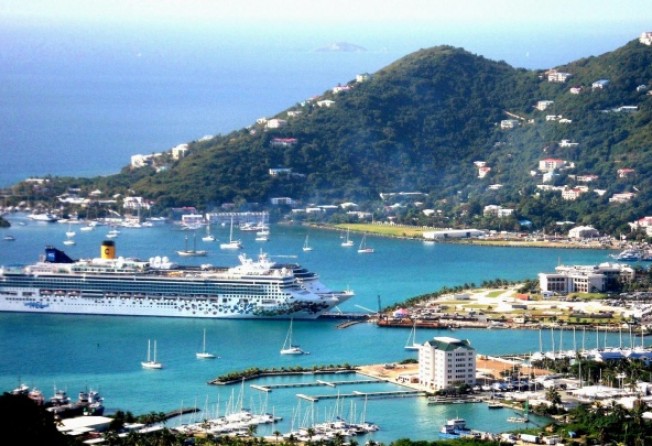Bank chief probed over secret deals
Austrian executive allegedly used Hong Kong firm to buy Singapore flats

Even as the European Union toughens its measures against tax evasion and offshore havens, an Austrian bank has confirmed it is investigating its chief executive for using companies in Hong Kong and the British Virgin Islands (BVI) to conduct property deals he did not report to his employer.
Raiffeisen Bank International chief executive Herbert Stepic owns a Hong Kong firm, Takego, and a BVI firm, Yatsenko International, which he used to buy three flats in Singapore, said a Reuters report that a spokesman for the bank confirmed was accurate.
Raiffeisen, with 60,000 employees and 14.2 million customers, is the only Austrian bank with offices in Asia, including Hong Kong, mainland China and Singapore, according to its website.
A search of the Hong Kong corporate registry found Takego was owned last year by a Hong Kong firm, Lintel Securities, wholly owned by David Chong Kok Kong, the chairman of Portcullis Trustnet, a financial services firm based in Singapore.
Portcullis was a major source of information on secretive offshore companies that was provided to the United States-based International Consortium of Investigative Journalists in one of the biggest financial leaks in history.
On March 21 this year, Lintel resigned as a director of Takego, which was incorporated on November 12, 2007, Hong Kong corporate records show.
Searches of the latest available corporate records, which may not show current affiliations, found Stepic listed as a director of only one Hong Kong firm, Raiffeisen's local branch.
Portcullis did not reply to questions from the Post.
On April 11, French Budget Minister Bernard Cazeneuve warned that Austria risked being blacklisted by the European Union if it did not reveal names of EU citizens with Austrian bank accounts. The next day, CNBC reported that Stepic played down the French minister's warning as an exaggeration. For years, Austria had resisted pressure to make its secretive banking sector more transparent.
At a European Council meeting in Brussels on Wednesday, Austrian Chancellor Werner Faymann said his country would start exchanging bank data with the EU by the end of this year and also seek to share bank data with countries outside the EU.
"It's a bad day for tax cheats," Faymann said.
At the meeting, the EU announced it would promote a new international standard of automatic exchange of tax information to the Group of 8, the Organisation for Economic Co-operation and Development and the Group of 20, of which China is a member.
The EU also called for tougher laws against money laundering to be implemented by the end of this year, as well as tighter regulations on business tax.
"This European Council managed to unblock a number of frozen files [on tax evasion]. There is a real acceleration, with clear deadlines," said council president Herman Van Rompuy.
"There is a momentum not comparable with the past, because we are in an unprecedented European crisis. I'm … convinced … there is a strong political will by the leaders, not only the Europeans but also on a global level, to go forward in attacking tax fraud and tax evasion."